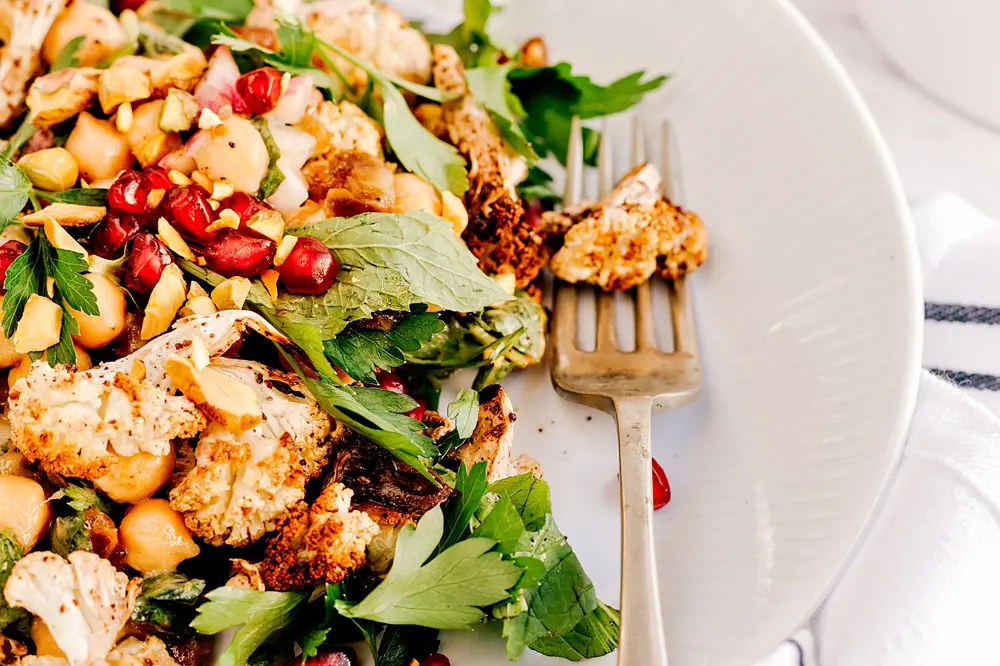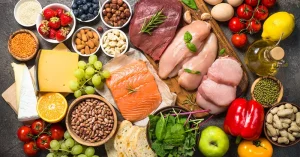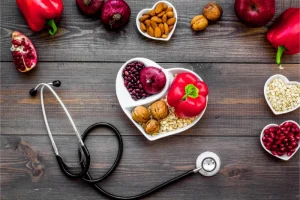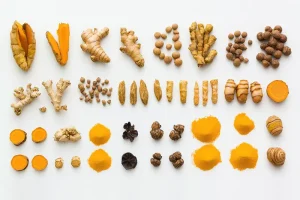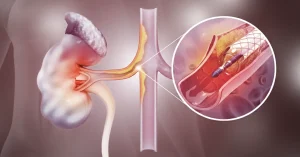The diet for gallbladder problems is intended for people diagnosed with various types of conditions, such as acute or chronic cholecystitis, gallstones, biliary dyskinesia, or biliary cancer. Patients with these biliary disorders frequently experience symptoms such as pain and discomfort in the upper abdomen, regurgitation, aerophagia, retrosternal burning, and biliary discomfort, especially after eating foods that trigger a biliary attack.
To more easily identify which foods trigger biliary attacks, it is recommended to note how often they occur, what was eaten at that meal, and how much was eaten. There are a number of triggers, such as strong smells, including the smell of soup combined with other foods being cooked simultaneously.
Read more: What are gallbladder diseases – Symptoms, complications, treatment.
Recommended Foods for Gallbladder Problems
Foods recommended for patients suffering from various types of biliary disorders and undergoing a biliary diet include:
- Soft-boiled or hard-boiled eggs;
- Lean beef, fresh or frozen fish, lean poultry (turkey or chicken) without skin, pork tenderloin, lightly seasoned meat, canned foods in water rather than oil;
- Low-fat milk, low-fat cheeses (cottage cheese, fresh cow’s cheese, curd);
- Fresh or frozen vegetables – mixed vegetables, Swiss chard, wild garlic, green beans, zucchini, loboda, spinach, mushrooms, boiled or baked potatoes, or mashed potatoes;
- Low-fat grains (diet biscuits, bread, whole grains, rolls, flatbread), rice, spaghetti, polenta;
- Fresh, seedless fruit, frozen or canned, in the form of compotes or jams; sugar-free options are ideal;
- Low-fat butter, starch-free sauces (consume sauces made with low-fat yogurt), vegetable oils in moderate amounts;
- Rice pudding baked in the oven with a little sugar or sweetener, honey, fruit jelly, seedless jam;
- Dill, parsley, lovage, bay leaf, and thyme used in small amounts; avoid excess and very spicy seasonings, especially hot ones;
- Still mineral water, St. John’s wort tea, mint tea, linden tea, lightly sweetened compote juices, clear vegetable soups.
Patients diagnosed with various biliary disorders and on a biliary diet should avoid the following foods:
- Meat and meat products with high-fat content, such as pork, game meat, mutton or lamb, minced meat of any kind, goose meat, schnitzels, smoked or fried meat (ham, prosciutto, smoked ribs, smoked bacon, fatty meat preserves, salami, sausages, cold cuts, meat jelly, spiced fish, lard, butter, mayonnaise);
- High-calorie pastries (pies, puff pastries, biscuits, crackers, croissants, meringues), cereals with added sugar, warm bread fresh from the oven;
- Fried eggs, mayonnaise made from eggs;
- High-calorie milk and dairy products such as full-fat yogurt, milk chocolate, fermented cheeses, high-fat cream, salty or spicy cheeses, processed cheese, and cottage cheese;
- Fibrous vegetables such as radishes, cabbage, beetroot, cauliflower, dried beans, broccoli, onions, cucumbers, garlic, horseradish;
- Spicy sauces containing hot peppers, pepper, paprika, chili, mustard, barbecue sauces;
- Nuts such as walnuts, hazelnuts, almonds, peanuts, pistachios, cashews, pumpkin seeds;
- Carbonated drinks, drinks taken straight from the refrigerator, very cold or very hot drinks, sour drinks, alcoholic beverages;
- Desserts containing animal fat, desserts made with lots of egg yolks, or containing lots of butter or heavy cream, leavened dough.
Diet for People Diagnosed with Acute Cholecystitis
In the first 24–48 hours after the onset of the disease, a diet containing plenty of fluids is recommended, such as lightly sweetened herbal teas, vegetable soups, and diluted fruit juices. It is recommended to drink two to three liters every two to three hours.
After 48 hours from the onset of the disease, fruit or vegetable purées, skimmed milk, and various skimmed milk or yogurt products can be added to this diet. Once the patient’s condition improves and the symptoms disappear, cow’s cheese, low-fat milk, lean fish, vegetable or pasta soufflés, and lean poultry, ideally free-range, can be added to the previous diet. Foods are gradually reintroduced, and the patient’s progress is monitored.
The Ideal Diet for a Sluggish Gallbladder
Biliary dyskinesia, known as “sluggish bile,” is a very common problem among people. It manifests in the form of biliary pain, affecting the gallbladder. To combat this medical condition, patients need appropriate treatment. However, this problem can also be prevented by following a healthy diet.
To avoid problems caused by biliary dyskinesia, the affected person must adapt to a moderate diet rich in cereals, vegetables, lean meat, and cheese, and toast. A moderate diet provides the body with the nutrients it needs without causing problems.
Whole grains and fresh vegetables help avoid added sugars, while lean meats and cheeses help avoid fats that can trigger an episode. In this way, problems with biliary dyskinesia can be prevented. Nutrition experts and modern research also show that foods rich in fiber and healthy fats can prevent the onset of symptoms of this disease.
A Glass of Water During Meals – How Healthy Is This Habit?
Some people drink water after soup, but the effects on digestion depend on timing and quantity. Drinking water during meals dilutes gastric juice, reducing the effectiveness of digestive acids, which may cause cramps or bloating. However, if we feel an urgent need to drink water while eating or are very thirsty, a moderate amount can be consumed safely.
A golden rule is to avoid sweetened or carbonated drinks, as these accelerate satiety. Juices are high in calories and contain significant concentrations of sugars and other elements that can lead to unpleasant symptoms.
Fruit – When Is the Best Time of Day to Include It in Your Diet?
To avoid feeling bloated and too full after a meal, doctors recommend eating fruit at least one hour after your main meal. Some fruits can be eaten immediately after a meal, acting as a gastric bandage.
Recommended fruits after lunch include pineapple and kiwi, as they aid digestion and improve comfort. Eating nutritious, low-calorie fruits before meals can help with satiety, reducing overall food intake. Following these recommendations helps prevent symptoms of biliary pain caused by sluggish bile.

